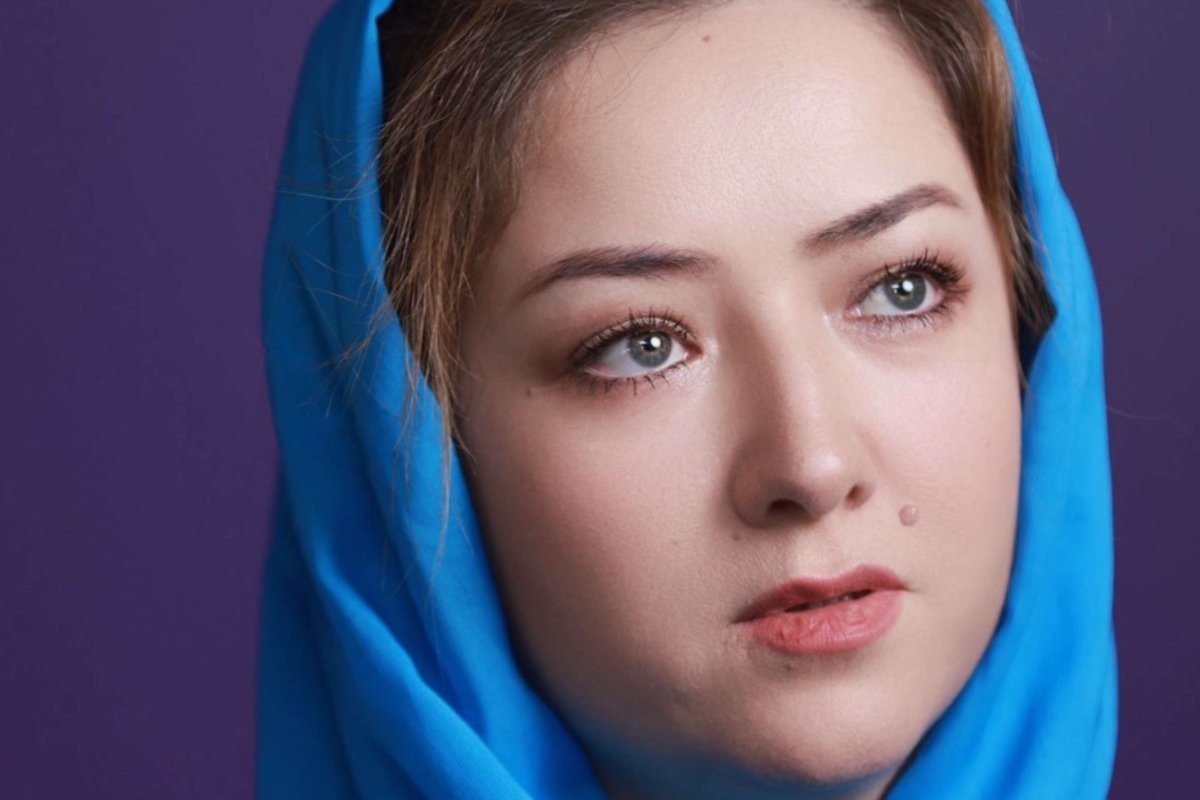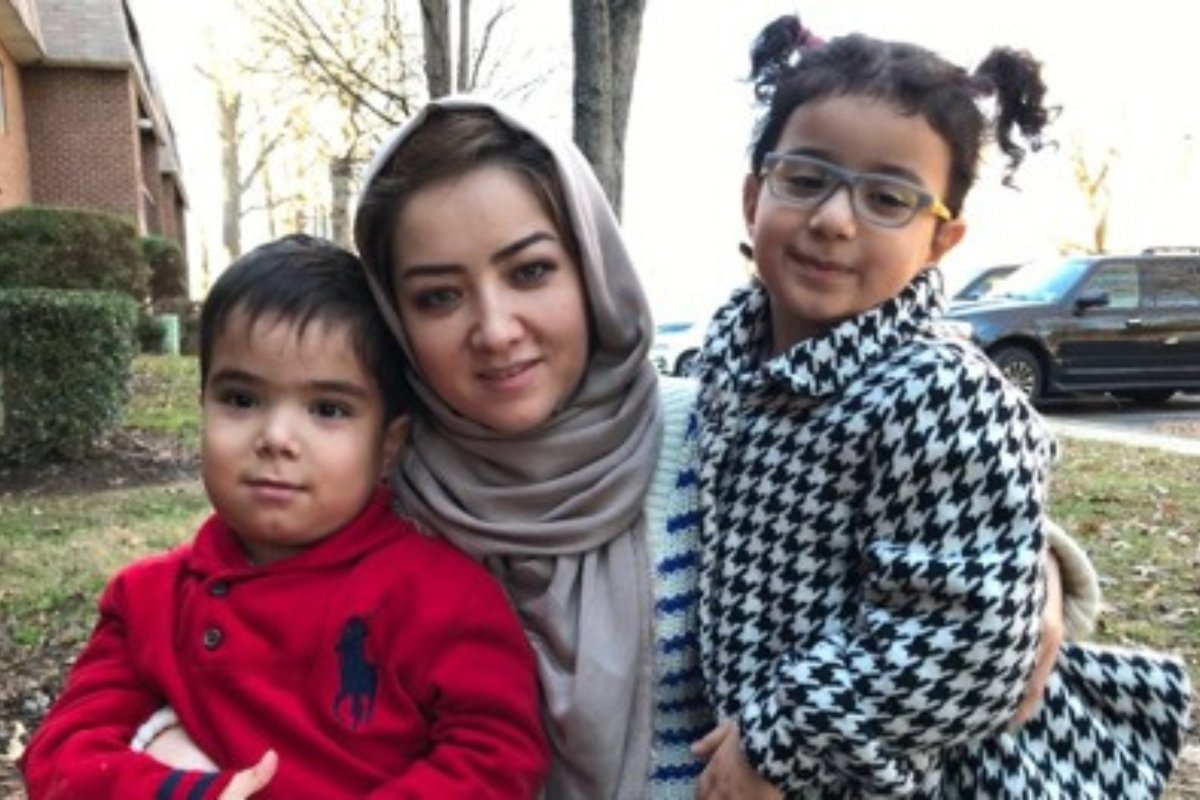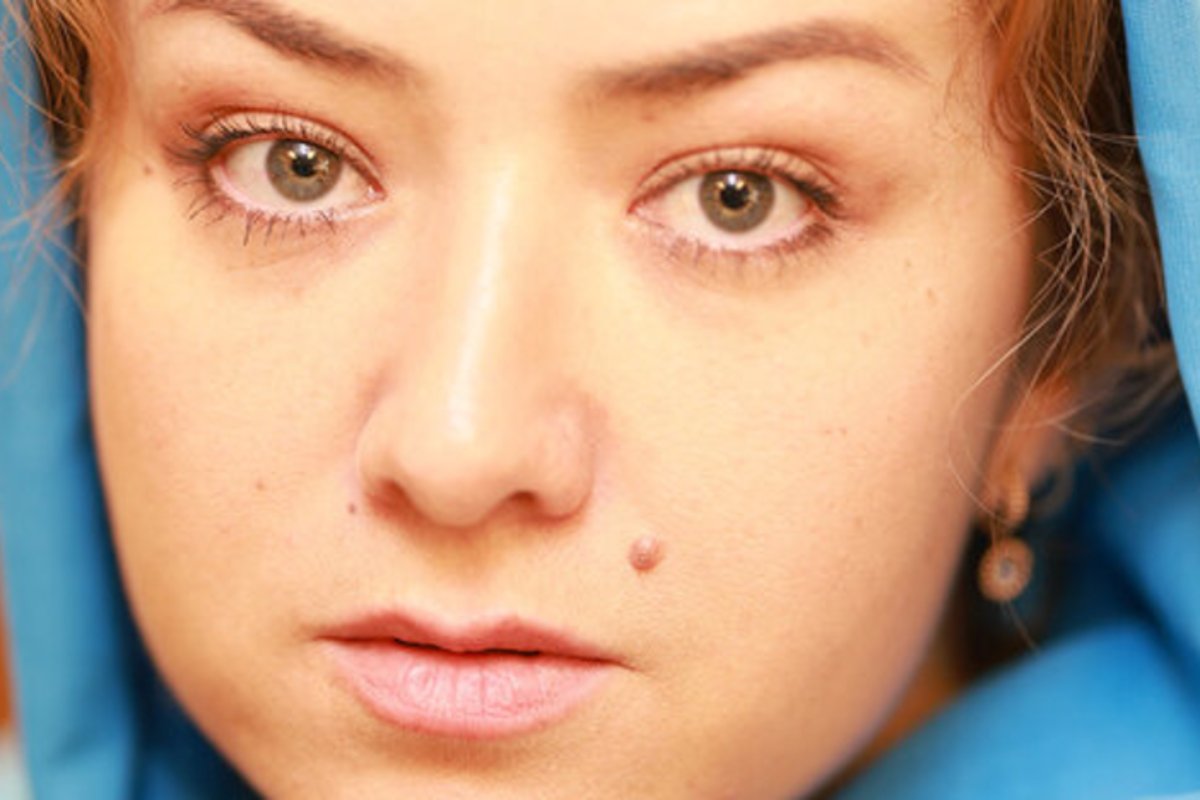I was awakened by a guard, who materialized in front of me and shook me out of my sleep.
"Come with me!" he yelled. He led me to the interrogation room that I had been in before.
However, this time I found different interrogators waiting there. I sat across from a new team of Chinese and Uyghur officers.
The officer in charge was a middle-aged Chinese man with the same emotionless gaze and cold eyes as his predecessor.
A stack of documents sat in front of him. A Uyghur policeman, with angry furrows carved deeply across his forehead, sat next to him. While the Chinese man initially ignored me as he stared at his papers, the Uyghur ordered the guard to tie me up to my chair.

"That way you won't get too comfortable with us," he said.
I think he did this to intimidate me, but I had already decided I wouldn't let them antagonize me or faze me in any way. To the contrary: I would behave with absolute cooperation.
When the officers realized that I wasn't keeping any secrets from them, they would perhaps see their error–and release me. This was the vague hope to which I was clinging.
The Chinese officer opened the conversation by reading aloud my name and date of birth. He then wanted to verify that what he had on record about my birthplace and my father's address were correct.
I confirmed for him the information I had already provided at the airport. I assumed that he wanted to be assured that I had told the truth from the beginning. The Chinese man also asked for the names of my two half-siblings.
"Where is your sister studying?" he asked.
I hesitated briefly. Did I have the right to drag her into all this, I wondered as my resolution to be fully cooperative momentarily wavered. However, I told myself that he could easily get this information through other channels and that he would be favorably inclined towards me if I willingly offered it to him. And so, I gave him the name of her university.
"And your brother lives with your parents?"
It sounded as if he already knew this. I was just about to ask him how he knew that, but I ordered myself to stay focused on his questions. "Yes, that's right," I replied.
He then went through my resume with me. I had to give him the name of the school in Toraklik, in addition to any other schools and the college I had attended in Guangzhou. He asked for the names of my teachers and fellow students, and wanted specific details about the part-time jobs I had worked during my student years.
He eventually asked me why I had gone to Cairo. I explained to him that I had wanted to study there.
"But why not in China?" he pressed. "Wouldn't that have been easier? Or do you not trust the Chinese educational system?"
"Of course, I do. But studying abroad appealed to me."
"Ah. And why was that?"
"I'm interested in foreign languages. Besides, I thought the international experience would increase my job opportunities."
"Okay, but why Egypt of all places? Why a Muslim country?"
"It was what I could afford, and..."
"Yes?"
Should I be honest? If so, I would have to admit that the fact that Arabic–a language in which I had some basic proficiency–is spoken in Egypt had also played a factor in my decision to include the country on my short list of potential nations in which to study.
However, I could still envision my Indonesian cellmate, who had confessed under interrogation that she had learned Arabic at a Koran school. Something similar was also true for me. Even before going to Egypt, I had been interested in Arabic, since it was the language in which our holy book, the Koran, had been written.
But I didn't want to make the same mistake that the Indonesian woman had made, so I remained silent.
"Do you think that we don't already know that even during your school years you were eager to live among Muslims?" the Chinese man asked.
"That isn't true."
"Really? Then why did you persuade your schoolmates to adopt the Islamic faith? And why did you marry an Arab man?"

I was speechless in the face of how much he knew about me–and how cleverly he worked with insinuations. "It was... love," I stammered. "We fell in love..."
He laughed loudly. "How sweet," he said. "Truly."
The Chinese officer fumbled for a package of cigarettes in his chest pocket and lit one. He exhaled the smoke appreciatively, before urging the Uyghur to help himself to one as well.
And so they just sat there across from me and puffed away as smoke slowly spread throughout the windowless room. I started to cough and asked if I could have a glass of water. My throat was terribly dry.
"Do you have any other wishes? Are we in a luxury hotel here or something?" the Uyghur officer snapped at me as he blew smoke directly into my face.
The interview lasted for hours, focusing primarily on my time in Cairo. The two officers had me explain in detail what my life had been like there, which cafes I had frequented, which mosques in the city I had visited, and who my friends had been, inside and outside of the university.
They diligently wrote down all the names I gave them.
I realized at some point that someone was listening in on us from the other side of the dark pane of glass. I couldn't see his face, just the outline of his head and torso. He stood up eventually and walked into our room.
It was another Chinese policeman, who then took over the interrogation along with a different Uyghur man. And so the officers changed places from time to time. The replacements were always wide awake and well informed about the ground we had already covered.
On the other hand, I grew increasingly tired. I lost all track of time, but I had the feeling that my interrogation was stretching over several days. I would reach the point that I didn't think I could bear the garish light a moment longer, and my eyes literally closed.
Whenever that happened, someone immediately began to shake me awake or would slap me on the back of the head. "Hey, we aren't done here yet!" they warned me.
They refused to give me even one second of peace. Time and again, I had to answer the same questions. "Why did you go abroad? Why did you marry an Arab man? Why are you wearing a headscarf? Are you a member of a terrorist organization?"
I couldn't stand it a minute longer. "No. I already told you! I'm not a terrorist!" I shouted at them.
"How many Uyghurs did you know in Cairo?" they continued, unperturbed.
"I have no idea! Maybe a dozen?"
I have to pull myself together, I told myself. Fatigue was making me lose my composure, and that was dangerous. But this was obviously their goal. I tried to marshal my mental faculties and concentrate on what was going on.
But I was slowly losing hope that this interrogation would ever end. In addition, I developed a painful headache, because the air quality in the room was so poor; I also felt an almost superhuman thirst.
When I finally reached the end of my strength, they waved several photos under my nose, which showed various Uyghur men and women, who lived or had lived in Cairo as I had done. The interrogator went through them, one at a time, with me.
As he came to each image, he asked me if I knew the person, and if I said yes, he demanded that I give them their names and any details I knew about their lives in Cairo.
"What is she studying?" he wanted to know about one of my classmates. "Does she go to the mosque every Friday? Does she wear a headscarf when she does?"
I felt nauseous in the face of these questions, but I forced myself to remember my resolve to stay cooperative. Nonetheless, this was where I hit my limits: I couldn't inform on my friends and acquaintances! And with that, I fell silent. The officers did the same.
"We have lots of time," the Chinese man declared as he blew smoke in my direction.
"Your poor babies," the Uyghur officer remarked. "Can you hear them crying close by?"
I listened. Despite my declining mental state, I was aware that he was probably just trying to rattle me. Nonetheless, for one long moment, I thought I could hear my babies sobbing down here in the cellar. The officer noticed the alert tension on my face.
"There, do you hear them?" he asked.
At that moment, I snapped. "You're all monsters!" I bellowed. "Give me my children right now! I have to nurse them, or they'll starve!"
"Well, well," the Uyghur man said. "Now who's getting impatient?"
"We're already taking care of your children," the Chinese officer interjected, a cold smile on his lips.
At that, the last remnant of my self-control fell apart. I sobbed in anger and despair, but the two men continued mercilessly.
"One more time: What is the woman studying?" The Chinese man repeated the question I had refused to answer before. "Don't deny that you know her..."
But I was no longer an in any condition to answer him. I couldn't think about anything but my children. I sat across from the two officers and wept. The Chinese man angrily slammed his fist down on the table.
"Cut that out!" he yelled. "You're unwilling to help us. And you refuse to confess your own crimes."
"What crimes?" I sniffed. "What am I supposed to confess? I haven't..."
"See, what I mean!" he interrupted me harshly. "We'll need to punish you more severely to help your memory start working again."
Two Uyghur guards untied me from the chair. At first, I was relieved that I was being released from my uncomfortable position. Every limb in my body ached, because the interrogation had lasted for a total of three days.
I expected them to take me back to the cell with the Malaysian and the Indonesian women, but that wasn't what they did. The men positioned me in between them and conducted me down a long corridor, at the end of which was a door that led to a dark antechamber.
Another door was located at the back of this space and behind that was my new cell. The chamber into which they now locked me was very cramped and pitch black. It was so dark that you couldn't see your hand in front of your eyes. The only tiny spark of light in the dark void was a red dot in the corner. It was presumably from a camera that was mounted to the wall.
Otherwise there was absolutely nothing in here: No light, no sound, no furnishings, and, most importantly, no other single human soul. Completely alone, I crouched there on the cool stone floor between the oppressively narrow walls. I was able to bear it for the first few hours.
After the interrogation, I initially crumpled wearily on the floor and slept for quite a while. I have no idea how long that was, but when I woke up, it was still dark. And I was still alone. I listened into the silence and waited for something to happen. But nothing occurred.
Nothing happened for hours and hours, and I slowly began to suspect what was still in store for me.

The only interruption to the dark monotony of my thoughts was the moment in which food was shoved into my cell through the slit in the door.
But even then I didn't interact with anyone; nobody spoke to me. The only thing I heard was the sound made against the stone floor by the metal dish holding a small serving of porridge or soup.
I sometimes consumed a little of this if I felt hungry. But most of the time, I couldn't keep the food down. In one of the corners of the room, there was a hole in the floor. This was the toilet, and that was where I scraped my vomit.
In my total isolation, I almost went insane. I felt as if I had been buried alive. Was I even still alive?
Everything grew blurry in my mind. I no longer had any sense of how much time had passed. Had I been down here for several days or weeks, or even a year? Did anyone out there still miss me?
In my desperation, I even began to think that I could hold a conversation with the camera.
"If a human being is sitting on the other side, please have mercy on me!" I pleaded. "I have three small children, who are crying for me incessantly..."
Another time, I sang a lullaby for my babies. But I never received an answer. There was only darkness and silence.
Mihrigul Tursun wrote Place of No Return together with the investigative journalist Andrea C. Hoffmann. The memoir, translated to English by Rachel Hildebrandt Reynolds, details Mihirgul's story of abuse in a re-education camp in China and her ultimate survival.
This piece is an extract from Place of No Return.
Do you have a unique experience or personal story to share? Email the My Turn team at myturn@newsweek.com
Uncommon Knowledge
Newsweek is committed to challenging conventional wisdom and finding connections in the search for common ground.
Newsweek is committed to challenging conventional wisdom and finding connections in the search for common ground.
About the writer
Mihrigul Tursun wrote Place of No Return together with the investigative journalist Andrea C. Hofmann. The memoir, translated to English ... Read more
To read how Newsweek uses AI as a newsroom tool, Click here.






